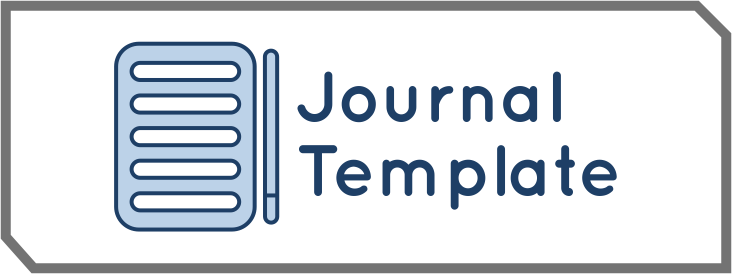Strategi Pembelajaran Inovatif untuk Meningkatkan Kemampuan Berpikir Kritis Peserta Didik
DOI:
https://doi.org/10.61132/inpaud.v2i2.232Keywords:
Critical Thinking, Innovative Learning Strategies, Learning Evaluation, Problem-Based Learning (PBL), Project-Based Learning (PjBL)Abstract
This study aims to explore innovative learning strategies in fostering students' critical thinking skills. Critical thinking skills are increasingly essential in today’s complex and challenging era. Approaches such as Problem-Based Learning (PBL), Project-Based Learning (PjBL), as well as open discussions and debates, are capable of encouraging students to think analytically, logically, and reflectively. These strategies emphasize the active role of students in the learning process—not merely as recipients of information, but also as seekers and processors of knowledge. Teachers serve as facilitators who create a learning environment that supports exploration and problem-solving. The evaluation of critical thinking skills is conducted through instruments such as rubrics, Higher Order Thinking Skills (HOTS) questions, and analytical essay tests, which allow for an in-depth assessment of students' abilities. The findings show that innovative learning is more effective than conventional methods in developing critical thinking skills. Therefore, these strategies are worth implementing widely in the education system to prepare students to face future challenges critically, creatively, and adaptively.
References
Abdullah, M. (2020). Manajemen Pendidikan Kontemporer: Konstruksi Pendekatan Berbasis Budaya dan Kearifan Lokal. CV Cendekia Press.
Akhyar, M., Sesmiarni, Z., Gusli, R. A., & Al Faruq, M. A. (2025). PENDEKATAN INOVATIF DALAM MENINGKATKAN MANAJEMEN MUTU BERBASIS SEKOLAH. Tadbir: Jurnal Manajemen Pendidikan Islam, 13(1), 133–153.
Akhyar, M., Zakir, S., Ilmi, D., & Febriani, S. (2024). Evaluation Of The Implementation Of The Lecture Process For Postgraduate PAI Students At UIN Imam Bonjol Padang In The Digital Era. Intiqad: Jurnal Agama Dan Pendidikan Islam, 16(1), 14–32.
Akhyar, M., & Zukdi, I. (2025). Ahmad Dahlan’s Thoughts on Education as a Means of Empowering the People. World Journal of Islamic Learning and Teaching, 2(1), 1–12.
Almulla, M. A., & Al-Rahmi, W. M. (2023). Integrated Social Cognitive Theory with Learning Input Factors: The Effects of Problem-Solving Skills and Critical Thinking Skills on Learning Performance Sustainability. Sustainability (Switzerland), 15(5). https://doi.org/10.3390/su15053978
Azis, Z., Doli Nasution, M., & History, A. (2022). Students’ Critical Thinking Ability Through the Application of the Creative Problem Solving (CPS) Model assisted by Autograph Article Info ABSTRACT. Journal of Mathematics Education and Application (JMEA), 1(3), 142–147.
Darmayanti, R. (2023). Gema Cow-Pu: Development of Mathematical Crossword Puzzle Learning Media on Students’ Critical Thinking Ability. Assyfa Learning Journal, 1(1), 37–48. https://doi.org/10.61650/alj.v1i1.1
Festiawan, R., Hooi, L. B., Widiawati, P., Yoda, I. K., S, A., Antoni, M. S., & Nugroho, A. I. (2021). The Problem-Based Learning: How the effect on student critical thinking ability and learning motivation in COVID-19 pandemic? Journal Sport Area, 6(2), 231–243. https://doi.org/10.25299/sportarea.2021.vol6(2).6393
Guo, Y., & Lee, D. (2023). Leveraging ChatGPT for Enhancing Critical Thinking Skills. Journal of Chemical Education, 100(12), 4876–4883. https://doi.org/10.1021/acs.jchemed.3c00505
Haryani, E., Cobern, W. W., Pleasants, B. A. S., & Fetters, M. K. (2021). Analysis of teachers’ resources for integrating the skills of creativity and innovation, critical thinking and problem solving, collaboration, and communication in science classroom. Jurnal Pendidikan IPA Indonesia, 10(1), 92–102. https://doi.org/10.15294/jpii.v10i1.27084
Iqbal, M., Ghozali, A., & Mustoip, S. (2024). The Role of Gamification Methods in Increasing Creativity and Innovation of Elementary School Students in the Digital Era The Role of Gamification Methods in Increasing Creativity and. 1(2), 21–27.
Issa, H. B., & Khataibeh, A. (2021). The Effect of Using Project Based Learning on Improving the Critical Thinking among Upper Basic Students from Teachers’ Perspectives. Pegem Egitim ve Ogretim Dergisi, 11(2), 52–57. https://doi.org/10.14527/pegegog.2021.00
Journal, C. D., Haddar, G. Al, Hendriyanto, D., Munandar, H., Kelibia, M. U., Muhammadiah, M., & Kritis, K. B. (2023). Analysis of the effectiveness of project steam-based learning model to improve students ’ critical thinking skills. … Journal: Jurnal …, 4(5), 10519–10525.
Kadaruddin, K. (2023). Empowering Education through Generative AI: Innovative Instructional Strategies for Tomorrow’s Learners. International Journal of Business, Law, and Education, 4(2), 618–625. https://doi.org/10.56442/ijble.v4i2.215
Kwangmuang, P., Jarutkamolpong, S., Sangboonraung, W., & Daungtod, S. (2021). The development of learning innovation to enhance higher order thinking skills for students in Thailand junior high schools. Heliyon, 7(6), e07309. https://doi.org/10.1016/j.heliyon.2021.e07309
Mohebi, S., Parham, M., Sharifirad, G., & Gharlipour, Z. (2018). Social Support and Self ‑ Care Behavior Study. January, 1–6. https://doi.org/10.4103/jehp.jehp
Nahar, S., Suhendri, Zailani, & Hardivizon. (2022). Improving Students’ Collaboration Thinking Skill under the Implementation of the Quantum Teaching Model. International Journal of Instruction, 15(3), 451–464. https://doi.org/10.29333/iji.2022.15325a
Rasyid, F., Aini, N., & Varghesse, K. (2023). Questioning Strategy That Works to Foster Critical Thinking Skills: A Study In Islamic University. JEELS (Journal of English Education and Linguistics Studies), 10(2), 335–355. https://doi.org/10.30762/jeels.v10i2.1048
Rini, E. F. S., & Aldila, F. T. (2023). Practicum Activity: Analysis of Science Process Skills and Students’ Critical Thinking Skills. Integrated Science Education Journal, 4(2), 54–61. https://doi.org/10.37251/isej.v4i2.322
Saputri, M. R. A., Indah, R. N., & Rasyid, F. (2022). Debate, Critical Thinking Disposition, and Self-confidence: Do They Contribute to Speaking Proficiency? Premise: Journal of English Education, 11(1), 189. https://doi.org/10.24127/pj.v11i1.4533
Sari, R. M., Sumarmi, Astina, I. K., Utomo, D. H., & Ridhwan. (2021). Increasing Students Critical Thinking Skills and Learning Motivation Using Inquiry Mind Map. International Journal of Emerging Technologies in Learning, 16(3), 4–19. https://doi.org/10.3991/ijet.v16i03.16515
Sutiani, A., Situmorang, M., & Silalahi, A. (2021). Implementation of an Inquiry Learning Model with Science Literacy to Improve Student Critical Thinking Skills. International Journal of Instruction, 14(2), 117–138. https://doi.org/10.29333/iji.2021.1428a
Warsah, I., Morganna, R., Uyun, M., Hamengkubuwono, H., & Afandi, M. (2021). The Impact of Collaborative Learning on Learners’ Critical Thinking Skills. International Journal of Instruction, 14(2), 443–460. https://doi.org/10.29333/iji.2021.14225a
Wu, Y. (2024). Critical Thinking Pedagogics Design in an Era of ChatGPT and Other AI Tools — Shifting From Teaching “What” to Teaching “Why” and “How.” Journal of Education and Development, 8(1), 1. https://doi.org/10.20849/jed.v8i1.1404
Zulyusri, Z., Elfira, I., Lufri, L., & Santosa, T. A. (2023). Literature Study: Utilization of the PjBL Model in Science Education to Improve Creativity and Critical Thinking Skills. Jurnal Penelitian Pendidikan IPA, 9(1), 133–143. https://doi.org/10.29303/jppipa.v9i1.2555









